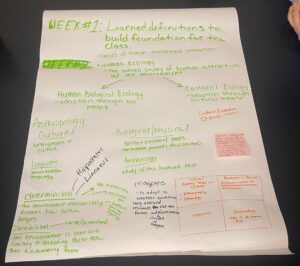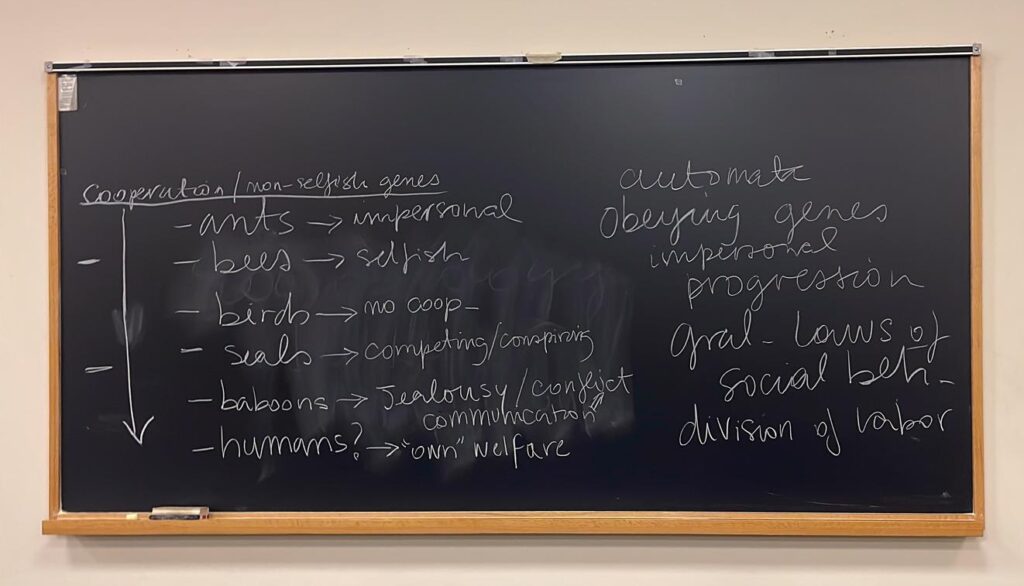Teaching Philosophy and Pedagogy
In my classes, I foster an inclusive, just, and participatory approach to learning. My class lectures and topics reflect pressing issues in conservation and societal impacts. I also rely on pedagogic tools such as mental maps and fishing-bowl discussions to facilitate the engagement with knowledge.
The educational strategy I apply builds upon three elements of active learning:
-
The generation of learning opportunities by doing research (learning by doing);
-
The generation of learning opportunities by being exposed to different cultural, institutional, and academic settings (learning by difference)
-
The shifting in how students define themselves and their role as future scientists or practitioners (positionality).
In line with this strategy, my instructional goal is to elicit critical and reflexive engagement with conservation and management issues, theoretical constructs, opinions, and arguments underpinning environmental problems.
To meet these goals, my teaching strategy relies on developing students’ competencies in both professional and instructional domains. Among professional skills, I concentrate on the following:
-
Identification and deconstruction of theoretical frameworks in formulating natural resource policy and understanding resource use and behaviors.
-
Engagement with different approaches, visions, and value systems in managing resources.
-
Communication: working across disciplines, stakeholder groups, and cultures to identify relevant issues and disseminate findings.



